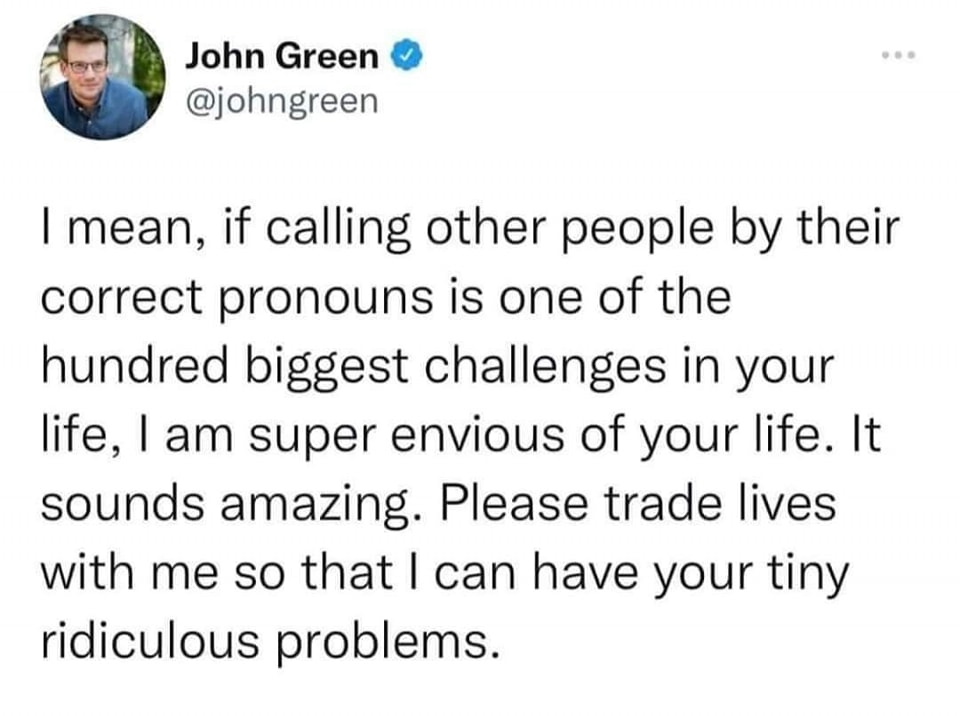this post was submitted on 28 Apr 2024
1550 points (92.4% liked)
Microblog Memes
7420 readers
2796 users here now
A place to share screenshots of Microblog posts, whether from Mastodon, tumblr, ~~Twitter~~ X, KBin, Threads or elsewhere.
Created as an evolution of White People Twitter and other tweet-capture subreddits.
Rules:
- Please put at least one word relevant to the post in the post title.
- Be nice.
- No advertising, brand promotion or guerilla marketing.
- Posters are encouraged to link to the toot or tweet etc in the description of posts.
Related communities:
founded 2 years ago
MODERATORS
you are viewing a single comment's thread
view the rest of the comments
view the rest of the comments

How does that differ from plural they?
the same way singular "you" differs from plural "you"
Right which is fine, but usually requires context clues to determine which and a story with multiple people can get real convoluted real quick. Maybe we should come up with some new terms, it’s our language we can do whatever we want
In my experience people react poorly to the accommodation ask of neopronouns. A lot of people will treat you as though you are childish, insane or you grew a second head. Outside the community or publication world neopronouns don't see much action.
Thev
You can use it as a gender-neutral way to replace he/she, it still represents a single person, as opposed to plural they. Context is required to determine whom it represents.
English dropped "thou" a while back...
it would be used in the same way french uses vous (which can both mean they, or when speaking to someone formally (opposite from informal, which only happens when you know the person/are buddies with)). Using they, especially if you dont know them first hand, leaves ambiguity on the table since youre not making assumptions.
You don't know the definition of singular?
Singular, "they" has not been taught widely to foreign learners (maybe not to native either?). I just recently learned about it myself from LGBT support content despite practicing since childhood, I never heard about it during my English lessons.
So yes indeed, many English speakers don't know about singular they.
Look at their post history and other comments in this thread. That question wasn't being asked in good faith.
I see, though, a little bit of information may help him or other readers.